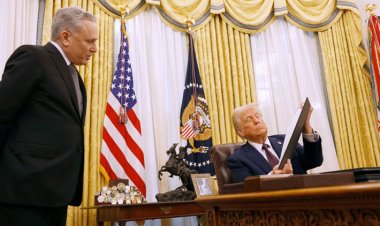Ukraine absent from emergency US government funding deal
The US House approved a stopgap spending bill that would keep the government open for the next 45 days without any enw aid to Ukraine

US Congress reached a compromise deal, briefly averting a potentially dangerous shutdown
The US House of Representatives and the Senate both approved a stopgap spending bill on Saturday. The resolution keeps the government open for the next 45 days at the current spending level and adds billions of dollars in funding for US disaster relief – but excludes new aid to Ukraine despite President Joe Biden’s request.
The so-called continuing resolution was passed in a 335-91 vote in the House and sent to the Senate just a few hours before the shutdown deadline. The House then adjourned until Monday, meaning the lawmakers did not expect to try something else if the Senate failed to approve the legislation.
The Senate approved the bill in a 88-9 vote, and passed it to President Biden, who had decided to stay in Washington this weekend, on standby to sign it.
The new plan, branded as a ‘clean’ bill by the Republicans, won the support from more House Democrats than Republicans, with just one Democrat voting against the short-term funding measure. It ensures that the federal operations are going at the current spending level, but includes none of the $24 billion funding for Ukraine that Biden said was necessary.
In a speech on the House floor Saturday, Rep. Michael Lawler (R-N.Y.) urged his colleagues not to allow the government to shut down simply because the bill excludes aid for Ukraine.
“If you're telling the American people with a straight face you will shut down the American government over Ukraine, then shame on you,” Lawler said.
With the government shutdown looming at midnight, the Senate will now face immense pressure to pass the House bill even without aid for Ukraine.
The new bill was introduced by the Republicans on Saturday morning, after an earlier plan aimed at steep social spending cuts and tougher border security measures was rejected on Friday.






















